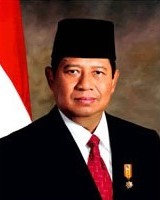Under President Susilo Bambang Yudhoyono, Indonesia has emerged as a success story in many ways. It has waged a resilient campaign against terrorism, achieved the third-highest economic growth rate among G-20 countries and demonstrated dynamic leadership within the Association of Southeast Asian Nations (ASEAN). Moreover, this political and economic stability has been achieved in a context of deepening democratic consolidation, after a period of suppression of political rights and civil liberties during the Suharto era.
But Yudhoyono's tenure has also seen the rise of radical Islam, which some view as the greatest threat to Indonesian democracy. Groups such as the Hizbut-Tahrir Indonesia and the Islamic Defenders Front have used strict and exclusive religious interpretations to justify the implementation of Shariah law and the infringement of the rights of religious minorities. These efforts undermine the spirit of moderation, tolerance and plurality of Islam that are embodied by Indonesia and enshrined in the country's founding Pancasila principles of unity and democracy. Experts are beginning to wonder aloud whether the world's largest Muslim-majority nation and third-largest democracy could see its reputation for religious tolerance and freedom tarnished by this vocal and increasingly violent radical Islamic fringe.
The evidence is damning. According to the Setara Institute, religious intolerance is on the rise in Indonesia, with a 30 percent increase in documented acts of violence and discrimination from 2009 and 2010 -- from 93 to 135, respectively. Most of these have included attacks on minority religious groups and their houses of worship as well as incitements of hatred through public statements. For instance, since Yudhoyono came to power in 2004, Muslim extremists have burned, attempted to shut down or opposed the construction of hundreds of churches. They have also conducted increasingly bold attacks against the minority Muslim sect Ahmadiyah, with 50 acts documented last year alone.

